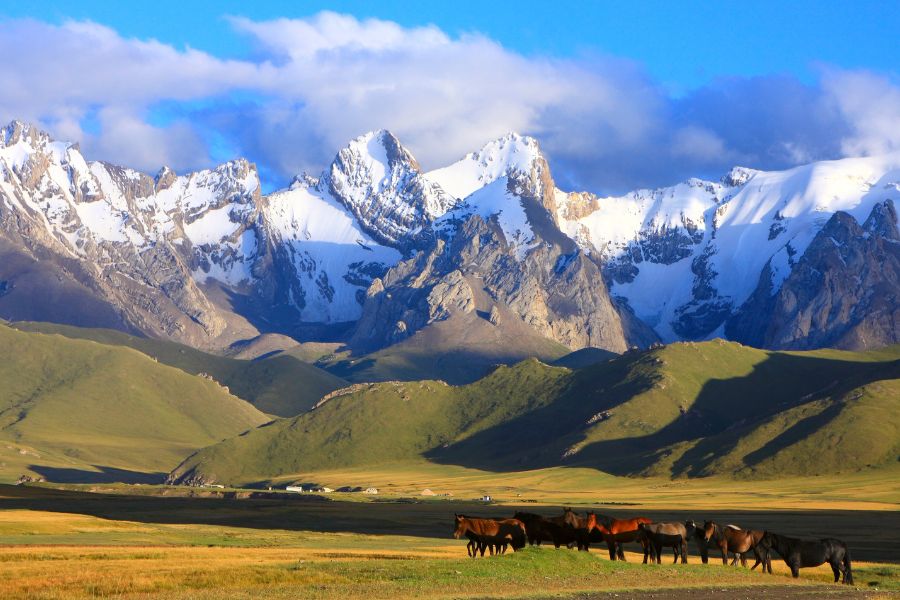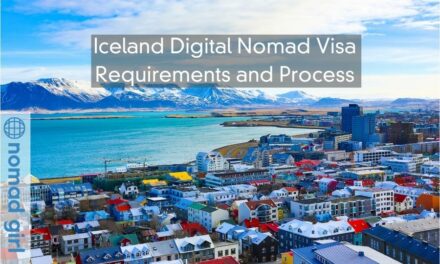Kyrgyzstan, a landlocked country nestled between Kazakhstan, China, Uzbekistan, and Tajikistan, is often overlooked by mainstream travellers. Yet, it’s a goldmine for nomads — digital and traditional alike. With its epic mountain landscapes, glacial lakes, and Silk Road cities, this Central Asian gem is a living canvas of natural drama and cultural richness.
- Geography: 94% mountainous, with dramatic ranges like the Tien Shan and Pamirs dominating the skyline. Nature lovers won’t need a filter — this place is Instagram-perfect year-round
- Culture: The Kyrgyz people have a deep nomadic heritage. Hospitality here isn’t just a tradition, it’s a way of life. Expect to be invited for tea and beshbarmak (the national dish) by complete strangers.
- Affordability: The cost of living is far lower than in Western countries or even Southeast Asia — perfect for bootstrapping freelancers or six-figure crypto bros alike.
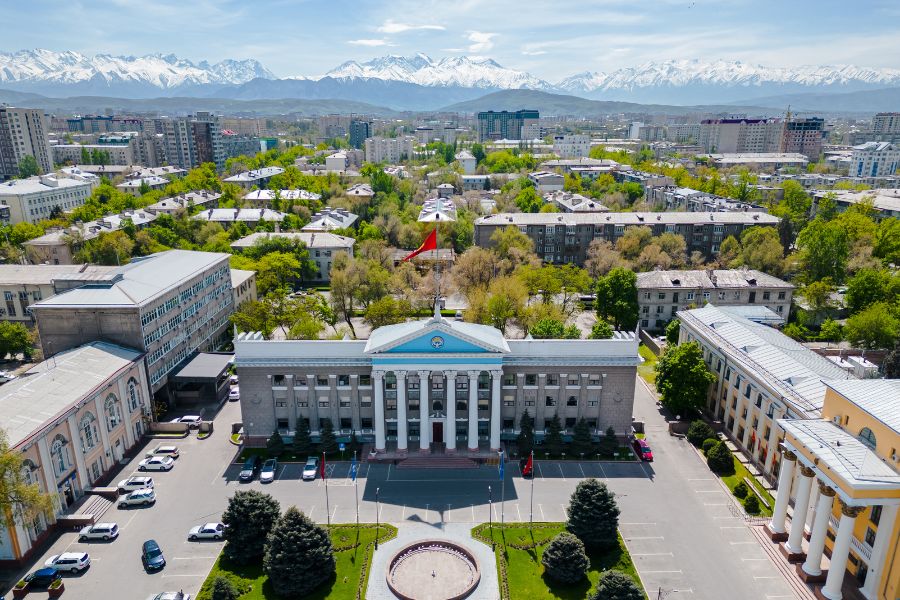
Digital Nomad Visa Overview
Kyrgyzstan’s government is stepping into the global remote work conversation. In late 2024, it announced the “Digital Nomad Status” program. It’s aimed at attracting professionals who can bring innovation and foreign currency without competing in the local job market.
- Purpose: To boost local IT ecosystems and put Kyrgyzstan on the map as a digital-friendly destination.
- Duration: Valid for 6 months with the option to extend for another 6 months — giving you a full year to explore mountain passes and coworking hubs.
- Sectors targeted: Especially IT, creative services, marketing, e-commerce, and design. The government wants to court high-value talent, not TikTokers with ring lights.
Note: It’s not yet a fully formalised “visa” like in Portugal or Estonia, but a hybrid status granted to eligible applicants — often on a long-stay visa or e-visa platform.
Eligibility Criteria – Who Can Apply
To be approved for the Kyrgyzstan Digital Nomad Visa, applicants must tick the right boxes — and not just metaphorically.
- Nationality: Open to citizens of countries with friendly diplomatic relations and existing visa agreements. This includes most of the EU, UK, US, Canada, Australia, and Japan.
- Employment: Applicants must prove they work remotely — either employed by a foreign company, running their own business registered abroad, or freelancing for international clients.
- Minimum income: While there’s no fixed public threshold, most cases require proof of stable income, such as USD 1,500–2,000 per month. Enough to avoid becoming a burden on public services.
- Clean record: A police clearance certificate is mandatory. If you’ve got any skeletons in your legal closet, now’s not the time.
Kyrgyzstan wants digital citizens, not digital fugitives.
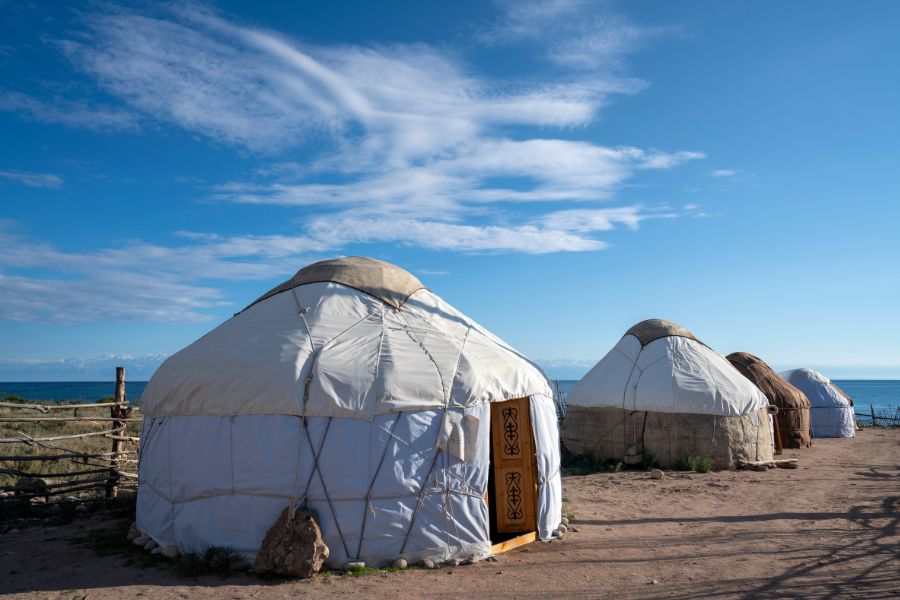
Required Documents – Your Paper Trail to the Peaks
The application doesn’t require a shoebox of paperwork, but the essentials need to be airtight. Here’s what you’ll typically need:
- Passport: Minimum 6 months’ validity and at least two blank pages.
- Remote Work Proof: Employment contract, freelance agreement, or business registration. Screenshots of Upwork gigs won’t cut it — you need real documentation.
- Bank Statements: Three to six months showing regular income or substantial savings. Digital nomad life in Kyrgyzstan may be cheap, but being broke is never trendy.
- Health Insurance: International coverage is required — not just for you, but for Kyrgyzstan’s sake. They’re not keen on picking up your medical bills if you fall off a horse in Song-Kul.
- Criminal Background Check: Recent (within the last 6 months) and translated into Russian or Kyrgyz if needed.
- Accommodation Plan: Hotel bookings, rental agreement, or letter of invitation.
Tip: Translate your documents through an approved notary. Bureaucracy in Central Asia is still a paper-based sport.
How to Apply – The Process, Step-by-Step
Getting the digital nomad visa is more straightforward than in some other nations — think less red tape, more nomad tape.
Step 1 – Online Pre-Application
- Visit the official e-visa platform.
- Select the appropriate visa type (long-stay or business visa depending on your profile).
- Submit basic personal data and upload scanned documents.
Step 2 – Wait for Approval
- Processing time: usually between 7–14 working days.
- You’ll receive your visa by email (in PDF form) or may be asked to visit a local consulate.
Step 3 – Arrival in Kyrgyzstan
- Upon entry, register your address with the local immigration office (OVIR) if your stay exceeds 60 days.
- If you plan to apply for a second 6-month extension, start early — bureaucracy moves on horseback here.
Step 4 – Apply for Digital Nomad Status
- After arrival, visit the Ministry of Digital Development or their partner office to file for the DNV, this helps in tax exemption and visa extension.
Optional: Some nomads hire local fixers to guide them through the process — worth it if you’re tight on time or allergic to bureaucracy.
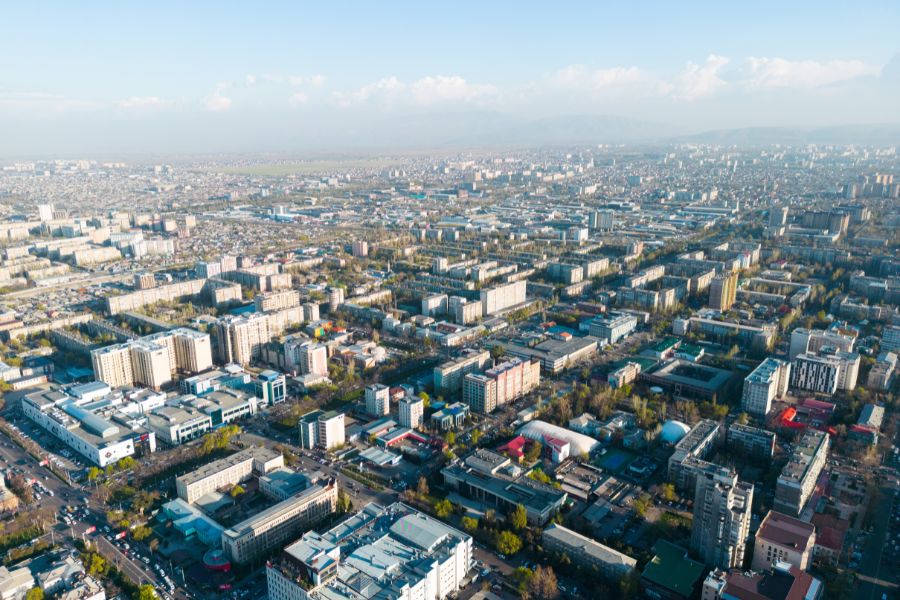
Financial Costs – Visa and Lifestyle
Living in Kyrgyzstan is a breath of financial fresh air. You won’t need to mortgage your laptop to get by.
- Visa Fee: ~$250 USD, Additional costs may include document translation and notarization (approx. $30–$60 total).
- Coworking Memberships: $40–80/month for a desk in Bishkek.
- Accommodation:
- $250/month for a studio in Bishkek.
- $100/month for a shared flat in Osh.
- $10–20/night for scenic homestays in mountain towns.
- Utilities and Internet: Around $50/month for decent fibre optic and heating.
- Food: $200–$300/month if self-catering; less if you love street food.
- Transportation: Marshrutkas (minivans) are under $0.30 a ride. Or get your own horse — literally.
You can live comfortably in Kyrgyzstan on less than $1,000 per month — with room to splurge.
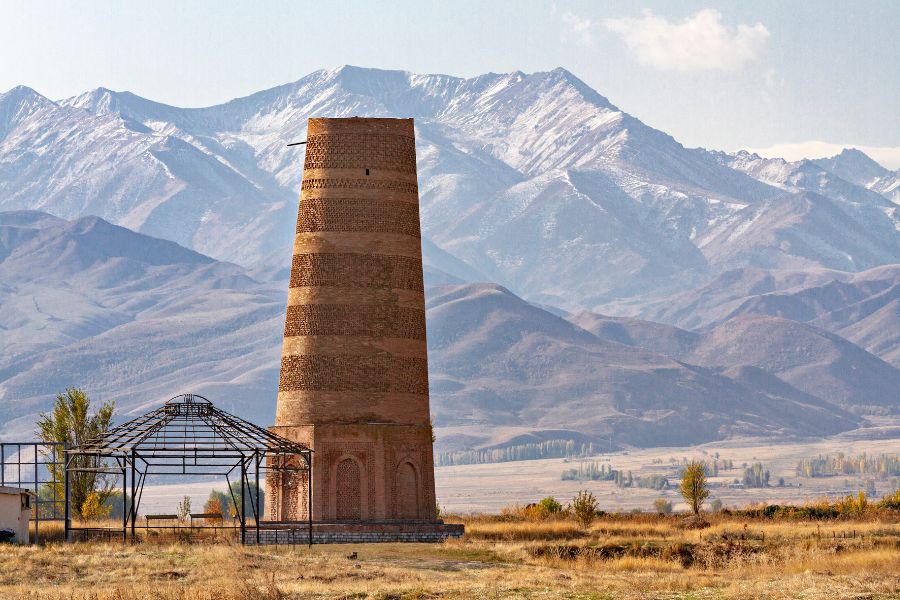
Taxation for Digital Nomads in Kyrgyzstan
Kyrgyzstan offers one of the most tax-friendly environments for digital nomads in Central Asia. The rules are simple, and the obligations are minimal — a welcome contrast to the financial red tape many nomads face elsewhere.
- Tax Residency Threshold: According to Kyrgyz tax law, individuals only become tax residents if they spend 183 days or more within a 12-month period in the country. For digital nomads staying less than that, no local tax applies to foreign income — full stop.
- Foreign vs. Local Income: Even if you cross that 183-day line, Kyrgyzstan still doesn’t tax your remote income — unless it originates from inside the country. Foreign citizens without permanent residency are only taxed on income sourced within Kyrgyzstan, not on earnings from clients or employers abroad.
- What Counts as Foreign Income? Any salary, freelance payment, or business revenue received from a company based outside Kyrgyzstan qualifies. As long as you don’t take on local clients or register a business within the country, your income stays legally tax-free.
- Flat Tax Rate on Local Income: Should you decide to earn from Kyrgyz clients or engage in local work, that income is subject to a flat 10% income tax. Still simple. Still low.
- No Social Contributions: Digital nomads also benefit from zero social security payments. That means no deductions for pensions, healthcare, or unemployment — a rare exemption that saves even more money for self-employed professionals.
- Tax Treaties for Extra Protection: Kyrgyzstan has over 25 double taxation treaties, including with countries such as the UK, Germany, and China. These treaties prevent being taxed twice on the same income and may entitle nomads to tax credits in their home countries if they ever pay Kyrgyz tax.
In short, Kyrgyzstan’s tax rules don’t punish digital nomads for staying a while. As long as you work for foreign companies and keep your income offshore, your money stays untouched — making Kyrgyzstan a savvy choice for remote workers looking to legally minimise their tax burden.
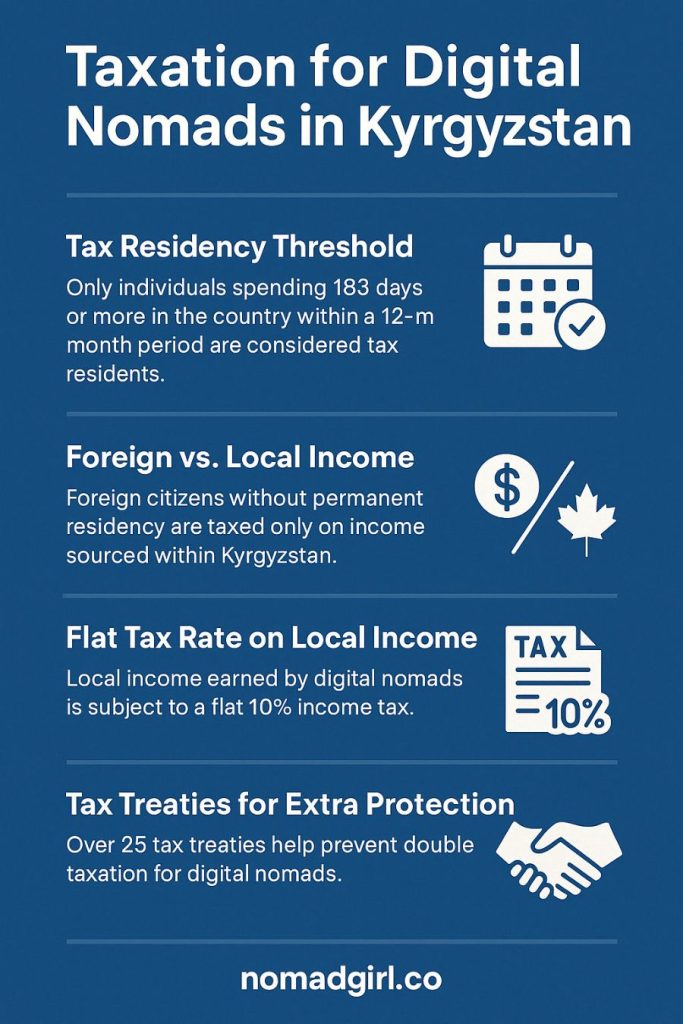
Working Infrastructure for Nomads
Kyrgyzstan may be remote, but it’s more connected than you’d think. Bishkek especially has a blossoming remote work culture.
- Internet Speed:
- Bishkek: 30–80 Mbps for fibre-optic.
- 4G coverage across most cities and towns; patchy in remote regions.
- Coworking Hubs:
- Ololohaus: Trendy, well-equipped, with English-speaking staff and community events.
- Coldo Hub: More business-oriented, perfect for developers or digital marketers.
- Studio 247: Hybrid coworking and café with a laid-back vibe.
- Power Reliability:
- Cities are stable. In villages, power cuts can happen — especially in winter. A good power bank is essential.
What’s Life Like for Digital Nomads in Kyrgyzstan?
Living in Kyrgyzstan is an experience — equal parts soul-soothing and occasionally head-scratching. But that’s the charm.
- Lifestyle:
- Work remotely by day, explore the wilderness by weekend. Lakes like Issyk-Kul and mountains like Ala-Archa National Park are hours — or minutes — away.
- Cost of Living:
- Among the lowest in Asia, and much more affordable than Chiang Mai, Tbilisi, or Lisbon.
- Community:
- A growing group of digital nomads, bloggers, and freelancers is forming in Bishkek. Most connect through Telegram groups or coworking spaces.
- Safety:
- Very safe for foreigners. Just use common sense — like avoiding unlit areas late at night and locking your devices.
- Culture:
- Expect Cyrillic signs, limited English, and an endearing obsession with horse milk (kumis). Hospitality is part of the national identity.
You’ll need patience with logistics, but you’ll gain mountains, friendships, and stories you’ll tell for a lifetime.

Final Thoughts – Is Kyrgyzstan the Right Fit for You?
If you’re craving something less mainstream, more authentic, and budget-friendly without sacrificing adventure, Kyrgyzstan is a strong contender.
Why Choose It:
- Affordable living and working conditions
- Legal remote work status via the Digital Nomad Visa
- Breathtaking landscapes for weekend escapes
- No income tax on foreign earnings
Consider Before You Go:
- You’ll need to navigate some bureaucracy
- Language barriers outside the capital
- Rural regions lack consistent infrastructure
Kyrgyzstan doesn’t shout for attention — but once you’re there, it steals your heart.

FAQ – Kyrgyzstan Digital Nomad Visa
Do I have to pay income tax in Kyrgyzstan as a digital nomad?
No. As long as your income comes from outside Kyrgyzstan and you don’t register as a local business or earn from Kyrgyz clients, your income remains tax-free — even if you stay over 183 days.
How long can I stay in Kyrgyzstan on the Digital Nomad Visa?
You can stay for 6 months initially, with the option to extend for another 6 months, giving you up to one full year.
Can I work for Kyrgyz companies or take on local clients?
Not on the Digital Nomad Visa. Earning local income would require business registration and would be taxed at a 10% flat rate.
What kind of remote work qualifies for this visa?
Most online jobs qualify — including freelancing, IT, marketing, creative work, e-commerce, and remote employment for foreign companies.
Do I need to speak Russian or Kyrgyz?
While not mandatory, learning a few basic Russian phrases will make everyday life much easier, especially outside of Bishkek.
Is health insurance required?
Yes. You must show proof of international health insurance covering your entire stay in Kyrgyzstan.
What are the internet and coworking options like?
Bishkek has reliable fibre-optic internet and a growing number of coworking spaces. Smaller towns have 4G coverage but may lack coworking infrastructure.
Can I bring my family?
Currently, there is no specific dependent visa tied to the digital nomad program. However, spouses and children may apply separately for tourist or long-term stay visas.


